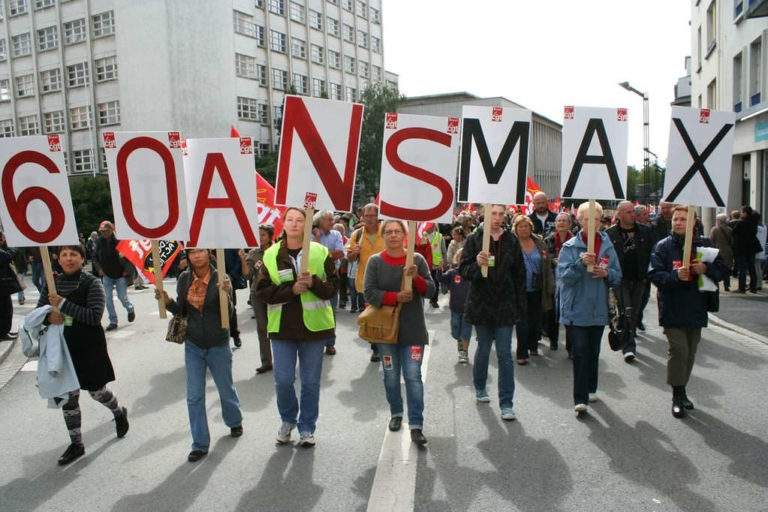After more than a month of massive strikes and monster demonstrations, the return to work promises to be decisive for both the executive and the unions. With two days of mobilization, January 9 and 11.
How to get out of this interminable conflict over pension reform? The arm wrestling between the unions and the executive has gone so far that, from now on, nobody wants to lose face. So there will be a winner and a loser.
The beginning of the year 2020 will start with a traditional Council of Ministers meeting on Monday 6 January. On the menu, necessarily, the strategy to be put in place to “break” the trade union unity and find a “quick compromise” wished by Emmanuel Macron in his wishes to the French, “with the unions that want it”. You don’t need to be a great observer of political life to understand that the government will have to make concessions in order to gain the sympathy of the so-called reformist unions that are the CFDT, CFTC and UNSA. Perhaps on the pivotal age at 64? If that was the case, Edouard Philippe would have to swallow a big snake.
Oil stain
In any event, the President of the Republic intends to complete the reform. It is therefore not clear what other concessions could be made by the executive branch. At the same time, the trade unions, often overwhelmed by their base, seem to want to harden the movement.
But time is running out. And the strike is sinking in. On Friday 3 January 2020, the liberal professions called for a strike: doctors, nurses, physiotherapists, lawyers, accountants… Others seem to want to follow suit. As the employees of oil refineries and chemical laboratories will come to reinforce the protest movement, with blocking from 7 to 10 January. Tuesday, January 7, negotiations resumed. We’re going to talk about the pivotal age, obviously, the end of careers, the hardship…
There will then be little time left to put together a text that can be presented to the Council of Ministers on 22 January.
The battle of opinion
In the meantime, however, the strikers will be looking to mobilise over two decisive days: Thursday 9 and Saturday 11 January. Philippe Martinez, the leader of the CGT “calls on all French people to go on strike, the alarm signal must be even louder”.
It is a question of winning the battle of opinion, for the unions as well as for the government.
According to an Odoxa poll, the French still support the opponents of the reform (61%) but the figure is falling due, in particular, to the impact of the strike on everyday life. The unions are well aware of this. The conflict must stop at the risk of losing all credibility.
Same thing on the executive side, which is well aware of the consequences of the chaos on the French economy, starting with craftsmen and shopkeepers. “It is time to move on,” said the Minister of the Economy, Bruno Le Maire.
During the arm wrestling, negotiations continue. But one or the other of the protagonists will have to bend the arm of the other.

